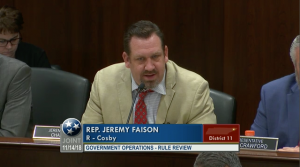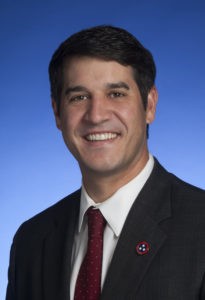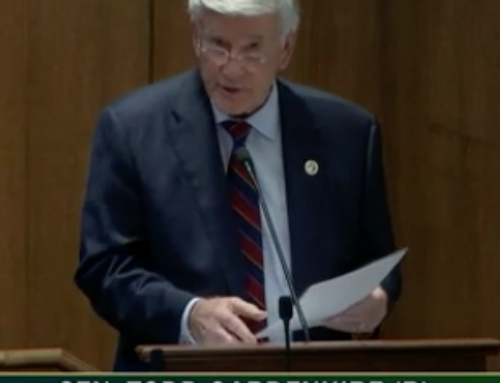Using cell phones to take pictures of public records? Here’s what the Open Records Counsel says
Earlier this year, Tennessee Coalition for Open Government requested an informal advisory opinion from the Office of Open Records Counsel about taking pictures of public records with cell phones.
We asked:
1 – Does the law allow a records custodian to prohibit citizens from using a camera to take pictures of public records “in all cases” where the law gives the citizen a “right to inspect” such records under the plain language of §T.C.A. 10-7-506(a) of the Tennessee Public Records Act.
2 – The Model Policy created by the Office of Open Records Counsel seems to give records custodians open-ended discretion to allow or not allow the use of personal devices:
“A requester will [not] be allowed to make copies of records with personal equipment. [Indicate under what circumstances, if any, the Governmental Entity will permit requestors to make their own copies or provide their own storage devices.]”
What standard must be used to exercise that discretion? And under what circumstances should or could taking an image of the record be allowed?
In his answer, Open Records Counsel Lee Pope references T.C.A. §10-7-506(a) and cites the 1998 Tennessee Supreme Court opinion in Tennessean v. Electric Power Board
T.C.A. § 10-7-506(a) states:
(a) In all cases where any person has the right to inspect any such public records, such person shall have the right to take extracts or make copies thereof, and to make photographs or photostats of the same while such records are in the possession, custody and control of the lawful custodian thereof or such custodian’s authorized deputy; provided, that the lawful custodian of such records shall have the right to adopt and enforce reasonable rules governing the making of such extracts, copies, photographs or photostats.
“This provision of the Tennessee Public Records Act (“TPRA”) allows a government entity to establish rules governing the copying of public records during inspection. Tennessean v. Electric Power Board of Nashville, 979 S.W. 2d 297 (Tenn. 1998). Rules governing the copying of public records are permissible so long as they do not substantially inhibit a citizen’s right to access public records,” Pope wrote.
In addressing the model policy offered by his office as a guide to government entities, he wrote:
“Given the various circumstances under which a governmental entity may, or may not, want to limit how a requestor makes copies, the Model Public Records Policy promulgated by our office leaves it to the discretion of governmental entities to indicate under what circumstances a governmental entity will allow a requestor to make copies with their own devices.”
Read the full opinion by Pope here: “Copying Records During Inspection.”
Court: Government agencies cannot adopt policies affecting rights of access without action by the Legislature
At issue in Tennessean v. Electric Power Board, (1998) was whether NES could charge The Tennessean newspaper in Nashville for its cost of notifying its customers that The Tennessean had asked for customer names and addresses, or could only charge for the cost of making copies of the records.
The Supreme Court said:
We think the language and meaning of Tenn. Code Ann. § 10-7-506(a) is plain: that an agency may enforce reasonable rules ‘governing the making of such extracts, copies, photographs or photostats.’ Those actual costs incurred by NES for disclosing the material requested by The Tennessean are recoverable under this statute. In contrast, there is no authority under the Act allowing an agency to establish rules that would substantially inhibit disclosure of records. Moreover, limiting an agency to rules that govern only the actual “making” of the extracts, copies, photographs or photostats is consistent with the legislative policy in favor of the fullest possible public access.
Our review is governed solely by the language in the Public Records Act and the clear mandate in favor of disclosure. We do not question the sincerity or intention of NES in making a policy that is, on the surface, in the interests of its customers’ privacy or safety. Yet these and any other matters of public policy that may affect the rights of access under the Public Records Act may not be adopted ad hoc by a government agency without action by the legislature. As we said in Holt: It is the prerogative of the legislature to declare the policy of the State touching the general welfare. And where the legislature speaks upon a particular subject, its utterance is the public policy . . . upon that subject.
Does banning photos affect rights of access?
Lee didn’t answer in his opinion whether or not a complete ban on members of the public from taking pictures of public records with cell phones would affect rights of access or would be a “reasonable rule.”
In an FAQ on the Open Records Counsel website, the office states that the public records act “does not grant a citizen the right to use personal copying equipment (e.g. cell phone, camera, hand-held scanner, laptop, etc.) to make copies” and refers to T.C.A. §10-7-506, which says that “[i]n all cases where any person has the right to inspect any such public records, such person shall have the right to take extracts or make copies thereof, and to make photographs or photostats of the same … (subject to reasonable rules).”
The FAQ also states that a person is allowed to take notes while inspecting records.
While the office’s model policy advises governmental entities to indicate the circumstances when they will allow someone to make their own copies of records, very few of the policies adopted by government entities do.
Instead, in a review of 259 policies of local government entities throughout the state earlier this year, TCOG found that 48% simply banned the use of personal equipment, such as a cell phone camera. Only 5 percent stated that personal equipment was permitted. Another 41% didn’t mention it.
Joint legislative committee has urged state agencies to allow photography of public records

Jeremy Faison makes a motion to ask a state agency to modify its rules to address their concern about banning photos of public records during a recent meeting of the Joint Government Operations Committee.
Several state agencies, which are in the process of adopting rules related to public records access, have included similar bans. Some, however, appear to be modifying their rules, largely in response to the Joint Government Operations Committee.
That committee, which hears agencies present their proposed rules, has been fairly clear on where they stand and has consistently asked the state agencies to consider allowing photos. Some have pressed, such as during a meeting earlier this week, for state agencies to explain the reason they are banning it, but have been unsatisfied with the answers.
“As we look in the future, chairman, I’m going to be suggesting that these public records be open if someone wants to take a picture and except for the redacted (information), they could,” state Sen. Mark Pody, R-Lebanon, said.
Several state agencies will be before the committee in December with their rules.





